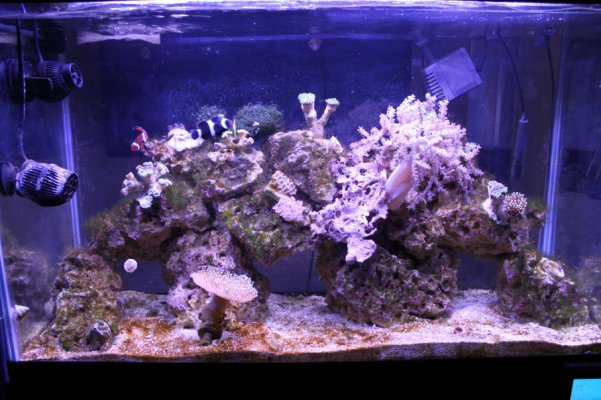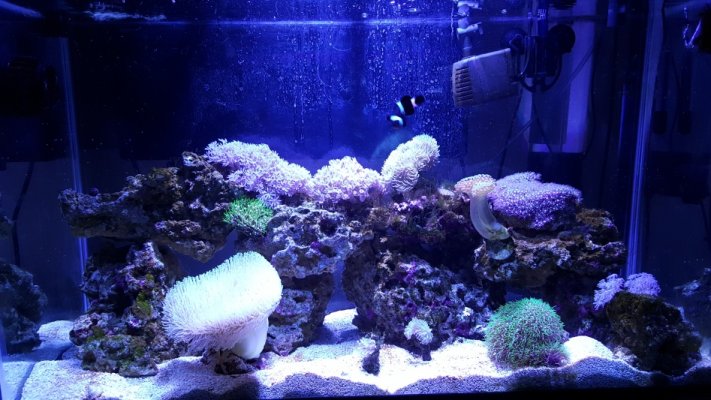NicoC16
Aquarium Advice Activist
- Joined
- Jul 4, 2013
- Messages
- 103
I have been running Orbit Marine LED's over my 30 gallon long reef tank and my corals have been struggling for quite some time now (not opening, growing, etc.). I was wondering if just running one 24-36" light strip over my 30" long by 20" deep tank would be enough. All of my soft corals are doing fine along with my duncan coral. My euphyllias are closed up quite a bit and look pathetic. I am thinking this light cannot produce the PAR my tank needs to foster LPS coral. My LPS pieces are placed in the middle to top of my tank and are receiving moderate to low water flow. I have been doing weekly water changes to get rid of the hair algae outbreak I have been having. At first, I attributed the excess phosphate in the tank to be disturbing my corals, but I have been wondering if these lights become useless after 2 years and need to be replace/upgraded. I am aware that old T5 and compact fluorescent bulbs begin to lean towards the red spectrum once they have been exhausted, but does this same condition occur in old LED lights. I am highly thinking about upgrading to some Ecotech Marine Radions because they're 10% off right now, and as they would give me a great PAR reading and customization of color. My current lights can be controlled, but I have them cranked up almost all of the way, yet my corals still don't respond well.
Thanks for any help.
Thanks for any help.


